
Update: a previous version of this story reported the series featured no queer contestants.
Television producers in Russia have launched their own knockoff version of RuPaul’s Drag Race, and already the show has attracted harsh criticism. Besides its obvious borrowing of the Drag Race premise, activists have attacked the show for ignoring the plight of queer people in Eastern Europe.
Royal Cobras launched on YouTube last week, and bears an uncanny resemblance to a certain other drag-themed competition series. The show comes complete with lipsync battles, campy comedy and lavish fashion, as well as features a judging panel of mostly straight celebrities. The show is the brainchild of Nastya Ivleeva, a Russian Instagramer and blogger. Queer rights activists have blasted the series, charging it with cultural appropriation.
Related: Tom Daley responds to being called “dirt” by Russian broadcasters
How about we take this to the next level?
Our newsletter is like a refreshing cocktail (or mocktail) of LGBTQ+ entertainment and pop culture, served up with a side of eye-candy.
“For me, this show has nothing to do with the LGBT agenda in Russia, because nowhere in the Royal Cobras was it said that this show was about LGBT people,” activist Nikita Andriyanov told The Moscow Times. Andriyanov founded the queer rights activist group Tetki in Russia.
He further charged the series “belittles human dignity.”
“The main problem lies in the silence,” Andriyanov said, “hence the feeling that LGBT people have never existed and that all this is ‘just show business.’ The only thing this show can do for the community is that drag queens can get their moment of fame and possibly earn more followers on Instagram.”
Despite the backlash from the LGBTQ community for a lack of representation, Royal Cobras has also taken steps to shield itself from Russia’s harsh anti-LGBTQ censorship laws. The first episode of the series features a disclaimer that says the show is “not aimed at former nontraditional sexual attitudes.”
Russian crackdown on LGBTQ people hit a new level of furor beginning in 2013 with the passage of harsh, discriminatory laws banning “gay propaganda.” That move has led to further oppressive laws, including a ban on marriage equality and adoption by same-sex couples. Most recently, the government proposed a new restriction that would define all LGBTQ people as “extremists.”


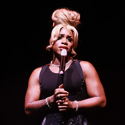
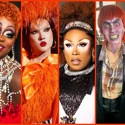
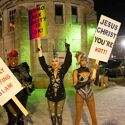




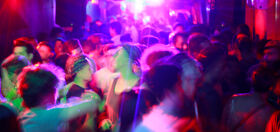
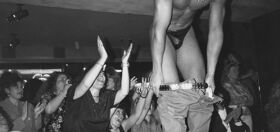


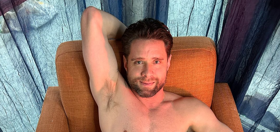
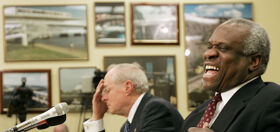

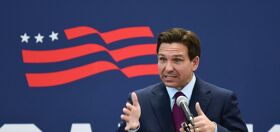
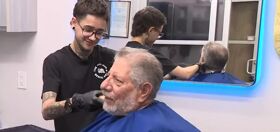

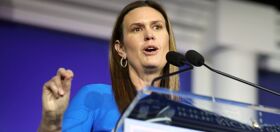
Kangol2
Disgusting and grotesque, yet exactly what I would expect from Russia and its media.
LumpyPillows
How do you know its disgusting and grotesque? I was unable to find a way to see any show content. Is there a link?
Mr. Stadnick
Have you seen it?
LumpyPillows
Not sure what to make of this. Is it a boldly subversive attempt to sneak drag into a wildly politically unfriendly environment, or a mockery? I need more facts, which one will never get on Queerty. However, it seems like it might actually be a good idea to subvert homophobia in Russia. Maybe we should be careful to knee jerk into automated cancel culture mode.
Hank31
Anything that decouples LGB people from “drag” and associates “drag” with free-spirited straight people is a good thing. Whatever the intentions or motives behind it, that show is helping LGBs.
Josh in OR
So…you’re admitting you know nothing about queer history, huh? Love unqualified, internally homophobic commentators who know nothing about what they decide to comment on…
Fahd
Sounds like just another example of why Ronald Reagan called Russia the “Evil Empire” and “the focus of evil in the modern world”.
I remain an advocate of “former nontraditional sexual attitudes” so the whole thing strikes me as a perversion of what is good about RuPaul’s franchise. The Russians are definitely believers in psychological warfare… beware world!
BobbyM1976
Also. The Grand Prize: a first class plane ticket to anywhere in the world.
Hmmmm
Romulus
It’s a lipsync show featuring drag queens, which by definition play with dress-up and comedy. Did RuPaul invent and trademark lipsync?.. Immediately, the American media are revving up its grievance engine, without quite understanding what it is all about. The giant problem of the LGBTQ community in Russia is the forced invisibility. A popular show that dares to bring visibility, even if not making a political statement, is a net plus. It is better than nothing. These drag queens are risking a lot daring to be on the show, yet not a single word of support.